What are you looking for at Aqrani library?
-
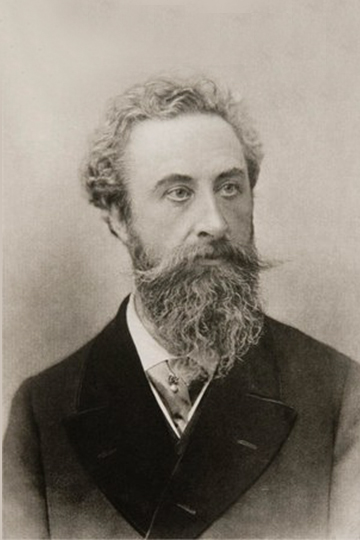
Edward Bulwer Lytton
Edward George Earle Lytton Bulwer-Lytton, 1st Baron Lytton, PC (25 May 1803 – 18 January 1873) was an English writer and politician. He served as a Whig member of Parliament from 1831 to 1841 and a Conservative from 1851 to 1866. He was Secretary of State for the Colonies from June 1858 to June 1859, choosing Richard Clement Moody as founder of British Columbia. He declined the Crown of Greece in 1862 after King Otto abdicated. He was created Baron Lytton of Knebworth in 1866. His marriage to the writer Rosina Bulwer Lytton broke down. Her detention in an insane asylum provoked a public outcry. Bulwer-Lytton's works sold and paid him well. He coined the phrases "the great unwashed", "pursuit of the almighty dollar", "the pen is mightier than the sword", and "dweller on the threshold", and the opening phrase "It was a dark and stormy night." Yet his standing declined and he is little read today. The sardonic Bulwer-Lytton Fiction Contest, held annually since 1982, claims to seek the "opening sentence of the worst of all possible novels". Bulwer was born on 25 May 1803 to General William Earle Bulwer of Heydon Hall and Wood Dalling, Norfolk and Elizabeth Barbara Lytton.
-
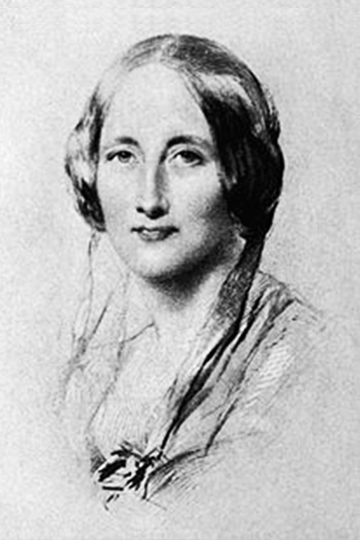
Elizabeth Gaskell
Elizabeth Cleghorn Gaskell (née Stevenson 29 September 1810 – 12 November 1865), often referred to as Mrs Gaskell, was an English novelist, biographer and short story writer. Her novels offer a detailed portrait of the lives of many strata of Victorian society, including the very poor. Her work is of interest to social historians as well as readers of literature. Her first novel, Mary Barton, was published in 1848. Gaskell's The Life of Charlotte Brontë, published in 1857, was the first biography of Charlotte Brontë. In this biography, she wrote only of the moral, sophisticated things in Brontë’s life, the rest she left out, deciding that certain, more salacious aspects were better kept hidden. Among Gaskell's best known novels are Cranford (1851–53), North and South (1854–55), and Wives and Daughters (1865), each having been adapted for television by the BBC.
-
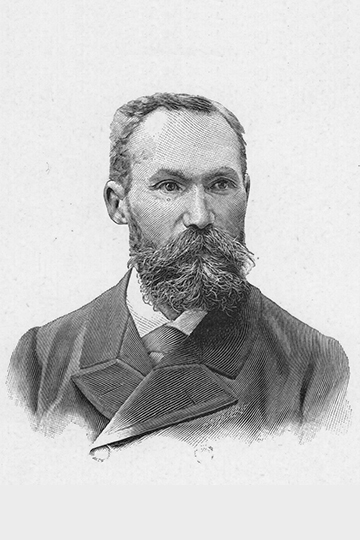
Émile Blémont
Léon-Émile Petitdidier, known as Émile Blémont, born July 17, 1839 in Paris where he died February 1, 1927, is a French poet and playwright. A prolific poet and occasional playwright, he was linked to Victor Hugo as well as to the poets of Parnassus and the symbolist poets. Rimbaud gave him the manuscript of his sonnet des Voyelles which is now in the Rimbaud Museum. In April 1872, he founded La Renaissance Littéraire et Artistique, in which he notably published the first French translation of Walt Whitman's Leaves of Grass. He also founded and directed La Tradition, La Revue du Nord, Le Monde poétique and Le Penseur. He was one of the founders of the Society of French Poets and of the House of Poetry.
-
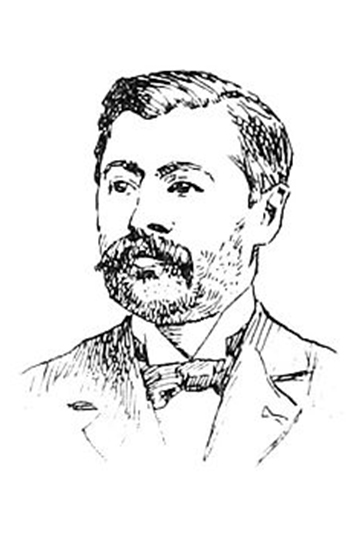
Émile Chevalier
Henri-Émile Chevalier born in Châtillon-sur-Seine, France on 1828 and died on 1879.Henry-Emile Chevalier was forced in exile by the December 1851 Coup d'Etat in France. In March 1853, he came to Montreal and joined Georges-Hippolythe Cherrier who had just started a new periodical called La Ruche Litteraire Illustree. In addition, during his stay in Montreal, Chevalier worked for several periodicals, was an active member of the Institut canadien de Montreal, and wrote many novels and serials depicting Canada's exoticism.
-
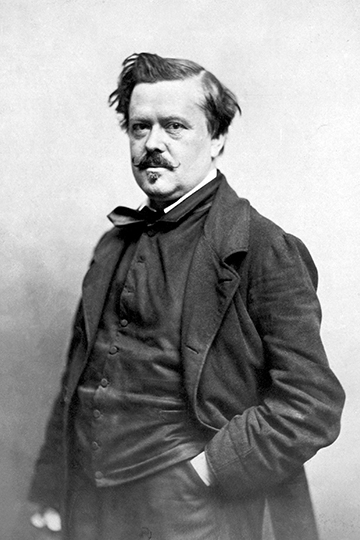
Émile de La Bédollière
Émile Gigault de La Bédollière, born May 24, 1812 in Amiens, died April 24, 1883 in Paris 1st arrondissement (51 rue d'Argenteuil), is a French writer, goguettier, journalist and translator. Son of Pierre Gigault de La Bédollière and Sophie Vérité, nephew of Count L. Gigault of La Bédollière de Bellefont, he studied law and became a lawyer in January 1833. He led a literary life during his studies, literary life started barely fourteen years old, when his first inspirations appeared in Psyche, a popular women's journal at that time. He then became part of this generation of French romantics which ignited at the time of the July Revolution (1830). He frequents Nerval, Théodose Burette, Bouchardy, Brot, Lorentz, Perrin, Théodore Rousseau, a mix of designers, engravers, poets and future playwrights.
-
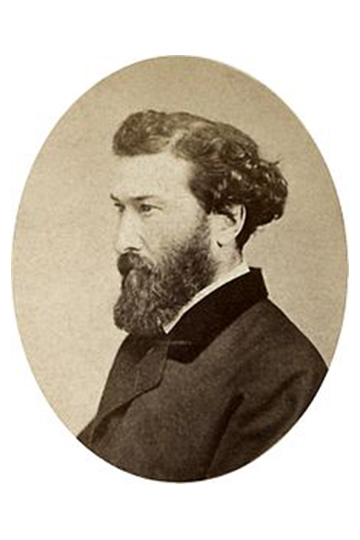
Émile Gaboriau
Émile Gaboriau (9 November 1832 – 28 September 1873) was a French writer, novelist, journalist, and a pioneer of detective fiction. Gaboriau was born in the small town of Saujon, Charente-Maritime. He was the son of Charles Gabriel Gaboriau, a public official and his mother was Marguerite Stéphanie Gaboriau. Gaboriau became a secretary to Paul Féval, and after publishing some novels and miscellaneous writings, found his real gift in L'Affaire Lerouge (1866). L'Affaire Lerouge, which was Gaboriau's first detective novel, introduced an amateur detective. It also introduced a young police officer named Monsieur Lecoq, who was the hero in three of Gaboriau's later detective novels. The character of Lecoq was based on a real-life thief turned police officer, Eugène François Vidocq (1775–1857), whose own memoirs, Les Vrais Mémoires de Vidocq, mixed fiction and fact. It may also have been influenced by the villainous Monsieur Lecoq, one of the main protagonists of Féval's Les Habits Noirs book series.The book was published in Le Siècle and at once made his reputation. Gaboriau gained a huge following, but when Arthur Conan Doyle created Sherlock Holmes, Monsieur Lecoq's international fame declined. The story was produced on the stage in 1872. A long series of novels dealing with the annals of the police court followed, and proved very popular.[2] Gaboriau died in Paris.
-
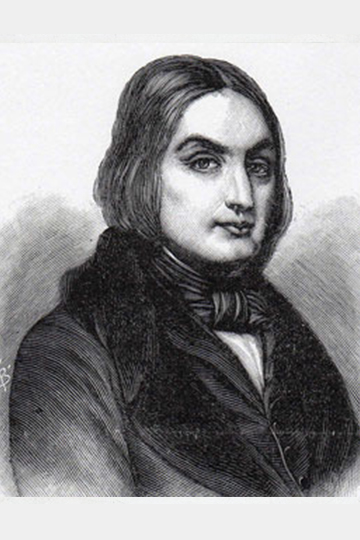
Émile Souvestre
Émile Souvestre (April 15, 1806 – July 5, 1854) was a Breton novelist who was a native of Morlaix, Brittany. Initially unsuccessful as a writer of drama, he fared better as a novelist (he wrote a sci-fi novel, Le Monde Tel Qu'il Sera) and as a researcher and writer of Breton folklore. He was posthumously awarded the Prix Lambert. He was the son of a civil engineer and was educated at the college of Pontivy, with the intention of following his father's career by entering the Polytechnic School. However, his father died in 1823 and he matriculated as a law student at Rennes but soon devoted himself to literature.He was by turns a bookseller's assistant and a private schoolmaster in Nantes, a journalist and a grammar school teacher in Brest and a teacher in Mulhouse. He settled in Paris in 1836. In 1848 he became professor in the school for the instruction of civil servants initiated by Hippolyte Carnot, but which was soon to be cancelled.
-
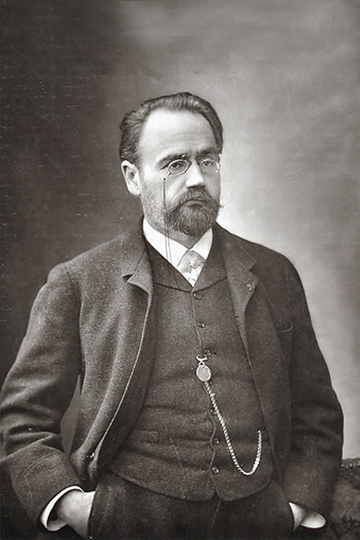
Émile Zola
Émile Édouard Charles Antoine Zola (2 April 1840 – 29 September 1902). was a French novelist, playwright, journalist, the best-known practitioner of the literary school of naturalism, and an important contributor to the development of theatrical naturalism. He was a major figure in the political liberalization of France and in the exoneration of the falsely accused and convicted army officer Alfred Dreyfus, which is encapsulated in the renowned newspaper headline J'Accuse…! Zola was nominated for the first and second Nobel Prize in Literature in 1901 and 1902. Zola was born in Paris in 1840 to François Zola (originally Francesco Zolla), and his wife Émilie Aubert. His father was an Italian engineer with some Greek ancestry, who was born in Venice in 1795, and engineered the Zola Dam in Aix-en-Provence, his mother was French. The family moved to Aix-en-Provence in the southeast when Émile was three years old. Four years later, in 1847, his father died, leaving his mother on a meager pension. In 1858, the Zolas moved to Paris, where Émile's childhood friend Paul Cézanne soon joined him. Zola started to write in the romantic style. His widowed mother had planned a law career for Émile, but he failed his Baccalauréat examination twice.
-

Emmanuel Cosquin
Emmanuel Cosquin (1841 - 1919) was a French folklorist. He wrote the Popular Tales of Lorraine, collected in the only village of Montiers-sur-Saulx, he defends the thesis according to which European tales are of Indian origin. Born in 1841 in Vitry-le-François, Emmanuel Cosquin first pursued law studies before turning to militant journalism. Author, among others, of various articles published in the Moniteur Universel, he also wrote “some very documented studies on Freemasonry”. He also participated in the creation of the Catholic Workers' Circles. In 1887, he received the Archon-Despérouses Prize.Elected in 1902 as the Institute's correspondent by the Académie des inscriptions et belles-lettres, on the proposal of Gaston Paris, he then turned completely away from journalism to devote himself only to to folklore. Publishing several studies in various scholarly journals, he undertook, among other things, from 1913, to write the Contes indiens et l'Occident, an unfinished work which first appeared in the form of issues in the Revue des traditions populaire and the Revue d'ethnographie. and popular traditions.Emmanuel Cosquin died in 1919.
-
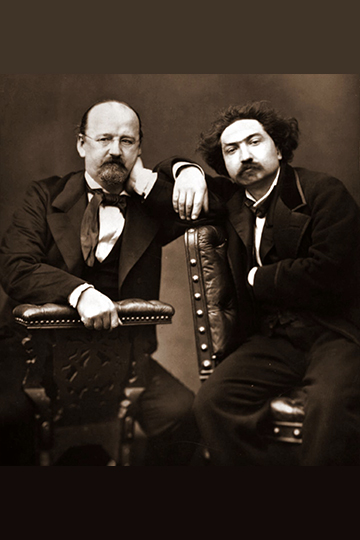
Erckmann Chatrian
Erckmann-Chatrian was the name used by French authors Émile Erckmann (1822–1899) and Alexandre Chatrian (1826–1890), nearly all of whose works were jointly written. Both Erckmann and Chatrian were born in the département of Meurthe (now Moselle), in the Lorraine region in the extreme north-east of France. They specialised in military fiction and ghost stories in a rustic mode Lifelong friends who first met in the spring of 1847, they finally quarreled during the mid-1880s, after which they did not produce any more stories jointly. During 1890 Chatrian died, and Erckmann wrote a few pieces under his own name.Many of Erckmann-Chatrian's works were translated into English by Adrian Ross.